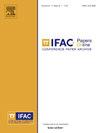Reimagining Salmon Supply Chains: A Sustainability Comparison of 3D-Printed and Traditional Production
Q3 Engineering
引用次数: 0
Abstract
The seafood industry faces growing sustainability challenges, including overfishing, resource inefficiency, and environmental degradation, necessitating innovative production alternatives. While traditional SCs benefit from established infrastructure and consumer trust, their high resource demand and operational inefficiencies highlight the need for sustainable alternatives. This study compares traditional and 3D-printed salmon SCs, using process mapping by flowcharting and sustainability metrics to evaluate their environmental, economic, and social impacts. Findings indicate that 3D-printed salmon reduces carbon emissions by up to 86% and freshwater consumption by 95%, primarily by eliminating farming, feed production, and long-distance cold storage. Additionally, localized production lowers logistical costs and enhances resource efficiency. Despite challenges related to consumer acceptance, regulatory approval, and scalability, 3D printing presents a promising complement to aquaculture, supporting long-term sustainability in seafood production.
重塑鲑鱼供应链:3d打印和传统生产的可持续性比较
海产品行业面临着日益严峻的可持续性挑战,包括过度捕捞、资源效率低下和环境退化,需要创新的生产替代品。虽然传统的SCs受益于现有的基础设施和消费者的信任,但它们对资源的高需求和运营效率低下凸显了对可持续替代方案的需求。本研究比较了传统的和3d打印的三文鱼SCs,通过流程图和可持续性指标来评估它们对环境、经济和社会的影响。研究结果表明,3d打印鲑鱼可以减少高达86%的碳排放和95%的淡水消耗,主要是通过消除养殖、饲料生产和长途冷藏。此外,本地化生产降低了物流成本,提高了资源效率。尽管在消费者接受度、监管批准和可扩展性方面存在挑战,但3D打印对水产养殖来说是一个有希望的补充,支持海鲜生产的长期可持续性。
本文章由计算机程序翻译,如有差异,请以英文原文为准。
求助全文
约1分钟内获得全文
求助全文
来源期刊

IFAC-PapersOnLine
Engineering-Control and Systems Engineering
CiteScore
1.70
自引率
0.00%
发文量
1122
期刊介绍:
All papers from IFAC meetings are published, in partnership with Elsevier, the IFAC Publisher, in theIFAC-PapersOnLine proceedings series hosted at the ScienceDirect web service. This series includes papers previously published in the IFAC website.The main features of the IFAC-PapersOnLine series are: -Online archive including papers from IFAC Symposia, Congresses, Conferences, and most Workshops. -All papers accepted at the meeting are published in PDF format - searchable and citable. -All papers published on the web site can be cited using the IFAC PapersOnLine ISSN and the individual paper DOI (Digital Object Identifier). The site is Open Access in nature - no charge is made to individuals for reading or downloading. Copyright of all papers belongs to IFAC and must be referenced if derivative journal papers are produced from the conference papers. All papers published in IFAC-PapersOnLine have undergone a peer review selection process according to the IFAC rules.
 求助内容:
求助内容: 应助结果提醒方式:
应助结果提醒方式:


